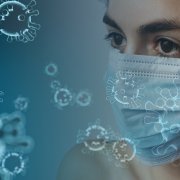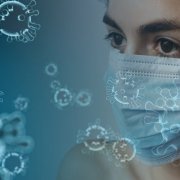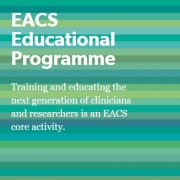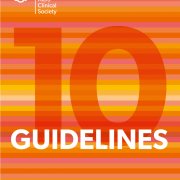Lessons learned from COVID-19
September 3, 2020 - 14:00-17:00
Clinical management of COVID-19
The new emergent coronavirus disease (Covid- 19), caused by SARS-CoV-2, first recognized in Wuhan city, in China in December 2019, has evolved to a global pandemic. The clinical spectrum of SARS-CoV-2 infection is wide, from asymptomatic infection, mild and moderate disease (80%), to severe (15%) and critical disease (5%) with respiratory failure, acute respiratory distress syndrome (ARDS), thromboembolism, acute kidney injury, and/or multiorgan failure. Advanced age, cardiovascular disease, hypertension, diabetes, obesity, chronic lung disease, malignancies, end stage kidney diseases, have been found to be risk factors for severe disease. As of August 1st, 2020, more than 18 million cases were confirmed worldwide and nearly 700.000 died. Due to the fact that Covid-19 pandemic is still evolving, and many aspects of transmission and treatment are still unclear, a multifactorial approach is mandatory, including updated information on effective clinical management, infection control and prevention.
Speaker: Dr Cristiana Oprea (Romania)
COVID-19: an epidemiological analysis of strategies and outcomes across Europe
We will describe some issues when comparing the death rates per million inhabitants and the number of tests per million inhabitants across Europe to assess the performance of each country in handling the COVID-19 epidemic including measurement issues, severity of the epidemics, dynamics of the strategies, socio-demographic data, prevalence of comorbidities and healthcare organisation.
Speakers: Prof. Dominique Costagliola (France)/ Prof. Christine Katlama (France)
COVID-19 and HIV: Differences and similarities
Both HIV and SARS-CoV2 revealed led to major social and medical impact as they entered in non-immune populations. Nowadays HIV is endemic, slowly regressing in rich countries through testing, treatment and pre-exposure prophylaxis, while still increasing in developing countries. The current SARS-CoV2 pandemic sounds like a brutal and unexpected repetition, destructurating societies, confinement being the only effective measure to control transmission, with all human, economical and social consequences. Herd immunity which does not apply for HIV remains controversial for SARS-CoV2, vaccine is awaited and will hopefully be easier to develop than against HIV. Therapeutic strategies against SARS-CoV2 remain unclear but contrary to HIV disease, Covid-19 is curable.
Speaker: Prof. Stéphane De Wit (Belgium)
How do we rebuild clinical services and research in a post-Covid era
The COVID-19 epidemic had an immediate effect on the provision of clinical services and ongoing research programmes. New ‘virtual’ models of care were adopted which prioritised face-to-face contact to those at urgent clinical need, and many research programmes were halted. As lockdown measures ease, a full recovery of services and research programmes may be hard to achieve. This session will discuss learnings from the past six months, identifying changes which, whilst forced upon us due to unprecedented circumstances, may be of longer-term benefit, whilst being mindful of the potential for some aspects of virtual healthcare to contribute to a global widening of inequalities.
Speakers: Dr Nicola Mackie (United Kingdom)/ Prof. Caroline Sabin (United Kingdom)


Вебсайт
Рекомендации для людей, живущих с ВИЧ (ЛЖВ), в отношении COVID-19

Educational Programme
Training and educating the next generation of clinicians and researchers is an EACS core activity.

EACS Guidelines updated
The EACS 10.1 and the app are available for free on
